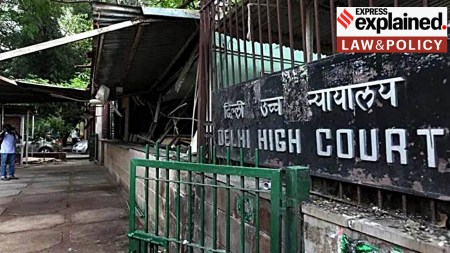
HOW DID HIGH COURTS INTERPRET THE NEW CRIMINAL LAWS FOR THE FIRST TIME?
On Tuesday (July 2), the Delhi High Court, and Punjab & Haryana High Court interpreted the Bharatiya Nagarik Suraksha Samhita (BNSS) for the first time. The development came just a day after BNSS and two other criminal laws — Bharatiya Nyaya Sanhita and the Bharatiya Sakhsya Adhiniyam — came into force.
In both the High Courts, the judges referred to the BNSS to decide if the cases before them should be decided using the old procedure under the Code of Criminal Procedure, 1973 (CrPC), or under the new criminal law regime. Specifically, they used Section 531 of the BNSS which states: any “appeal, application, trial, inquiry or investigation” that is pending before the BNSS comes into force will be dealt with under the CrPC “as if this Sanhita had not come into force”.
Why did the courts have to decide which criminal legislation to use in each case? And what did each court decide?
What did the Delhi High Court say?
KG Marketing India, in a trademark suit at the Delhi HC, sought an injunction against two persons — Rashi Santosh Soni and Santosh Soni (the defendants) — for using a logo that was “identical to and/or deceptively similar to the Plaintiff’s well known trade mark”, and includes the word ‘SURYA GOLD’ with a caricature of the Sun against a dark blue background. KG Marketing argued that it had been using this label since 2016, and submitted copies of newspapers with advertisements displaying their products in 2016.
Based on the information, the Delhi HC granted a temporary injunction and barred the two individuals from selling or advertising any products using this logo. However, in May 2023, the defendants filed an application stating that the newspaper copies were “false and fabricated” and that they had obtained true copies of said newspapers.
The defendants also filed a separate complaint accusing KG Marketing of knowingly using false evidence, making false statements. They sought to proceed against them under Section 340 of the CrPC, which contains the procedure for cases related to documents given in evidence.
At this stage, Justice Pratibha M Singh considered whether to proceed with the case under the CrPC or if the new criminal laws would apply instead. Since the application against KG Marketing was pending when the new criminal laws came into force, Justice Singh applied Section 531 of the BNSS and held that the CrPC would continue to apply to this case. She allowed the complaint to be registered and dismissed the suit after imposing costs of Rs 5 lakhs on KG Marketing.
What did the Punjab & Haryana High Court say?
In December 2023, Mandeep Singh — incarcerated after being convicted by a Sessions court in a cheque-bouncing case — filed a revision petition to assess the correctness of his conviction at the Punjab & Haryana HC under the CrPC. However, such petitions are required to be filed within 90 days after the conviction and Singh’s petition was only filed 38 days after this time-limit. To account for this, an application for ‘condonation of delay’ (delay application) was filed under Section 5 of the Limitation Act, 1963, claiming the delay was caused by Singh’s imprisonment.
Justice Anoop Chitkara noted that “Technically speaking, unless the delay was condoned, no criminal revision petition was pending before this Court”. Though he accepted the application in the early portion of the July 2 decision, he pointed out that the CrPC had been repealed and replaced with the BNSS in the meantime. So the court faced a dilemma. If the BNSS only applies to cases that arise after July 1 (according to Section 531), and the revision petition technically only came into existence on July 2, will it apply to Mandeep Singh’s case?
To answer this question Justice Chitkara referred to Section 6 of the General Clauses Act, 1897, which deals with the “Effect of repeal”. Following a repeal, it states that “any right, privilege, obligation or liability acquired” and any related “investigation, legal proceeding or remedy” will be unaffected and the repealed law will apply “as if the repealing Act or Regulation had not been passed.”
He then referred to the portion of Section 531 of BNSS which states that pending appeals will be dealt with “as if this Sanhita had not come into force”. After noting that the CrPC was in effect when both the petition and the delay application was filed, he decided that it would continue to apply to Mandeep Singh’s case.
For the latest news from across India, Political updates, Explainers, Sports News, Opinion, Entertainment Updates and more Top News, visit Indian Express. Subscribe to our award-winning Newsletter Download our App here Android & iOS
2024-07-05T13:42:25Z dg43tfdfdgfd